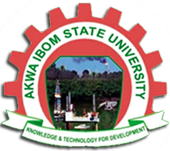Capital Structure and Profitability of Manufacturing Firms in Nigeria: 2006 - 2022
Abstract
This study examined the effect of capital structure on the profitability of manufacturing firms in Nigeria for a period of 17 years (2006-2022). The specific objectives of the study include: to investigate the effect of total equity capital on the profitability of manufacturing firms in Nigeria and also to examine the effect of total debt capital on the profitability of manufacturing firms in Nigeria. Data of three randomly selected manufacturing firms listed on the Nigeria Stock Exchange were sourced from the firms’ published financial reports for the period under study and were analyzed using Panel Least Square Regression technique. The model’s coefficient of determination has a value of 91% with adjusted R2 value of 86% indicating that 91% of changes in profitability are jointly influenced by the explanatory variables. The outcome of Panel Least Square Regression indicates that both equity financing and debt financing were positively signed at 5% level of significance; the coefficients suggested that the independent variables have increasing and significant effect on profitability of manufacturing firms in Nigeria. Based on these findings, it is therefore recommended that managers of manufacturing firms should increase their capital base through issuance of shares to the public or to existing shareholders and obtain more debt instruments that ensure capital adequacy. In taking such financial decisions, caution should be taken in order to maintain optimal capital structure.
